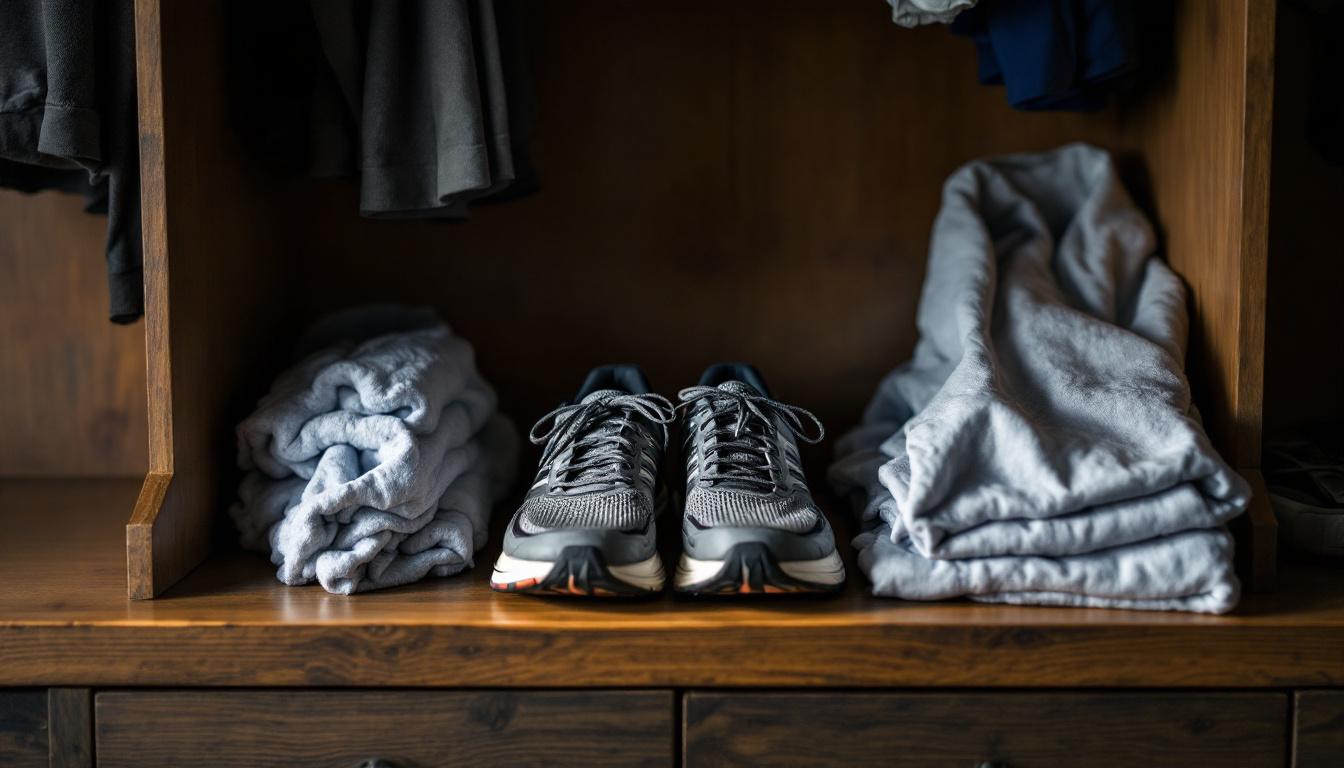Athlete retirement is a significant transition that requires careful planning and preparation. At Pro Hockey Advisors, we understand the challenges athletes face when stepping away from their sport.
This blog post will guide you through essential aspects of retirement planning, including financial strategies, career transitions, and mental health considerations. By addressing these key areas, we aim to help athletes navigate this new chapter with confidence and success.
Financial Game Plan for Athletes
At Pro Hockey Advisors, we’ve witnessed the importance of early financial planning for athletes. The average NHL career spans just 5 years (according to the NHL Players’ Association). This brief career highlights the need for smart financial decisions from the start.
Create a Solid Budget
Your first step: Establish a realistic budget. Monitor all income and expenses. We suggest the 50/30/20 rule: 50% for needs, 30% for wants, and 20% for savings and debt repayment. This method allows you to live comfortably while building future savings.
Diversify Your Investments
Avoid concentrating all your assets in one area. Distribute your investments across various asset classes. A combination of stocks, bonds, real estate, and alternative investments can protect against market volatility. Align your portfolio with your risk tolerance and long-term objectives.
Seek Specialized Financial Advice
Collaborate with a financial advisor who understands the unique challenges of athlete finances. They can help you:
- Monitor your resources, savings, and income
- Address tax issues
- Plan for your retirement
- Have a backup plan
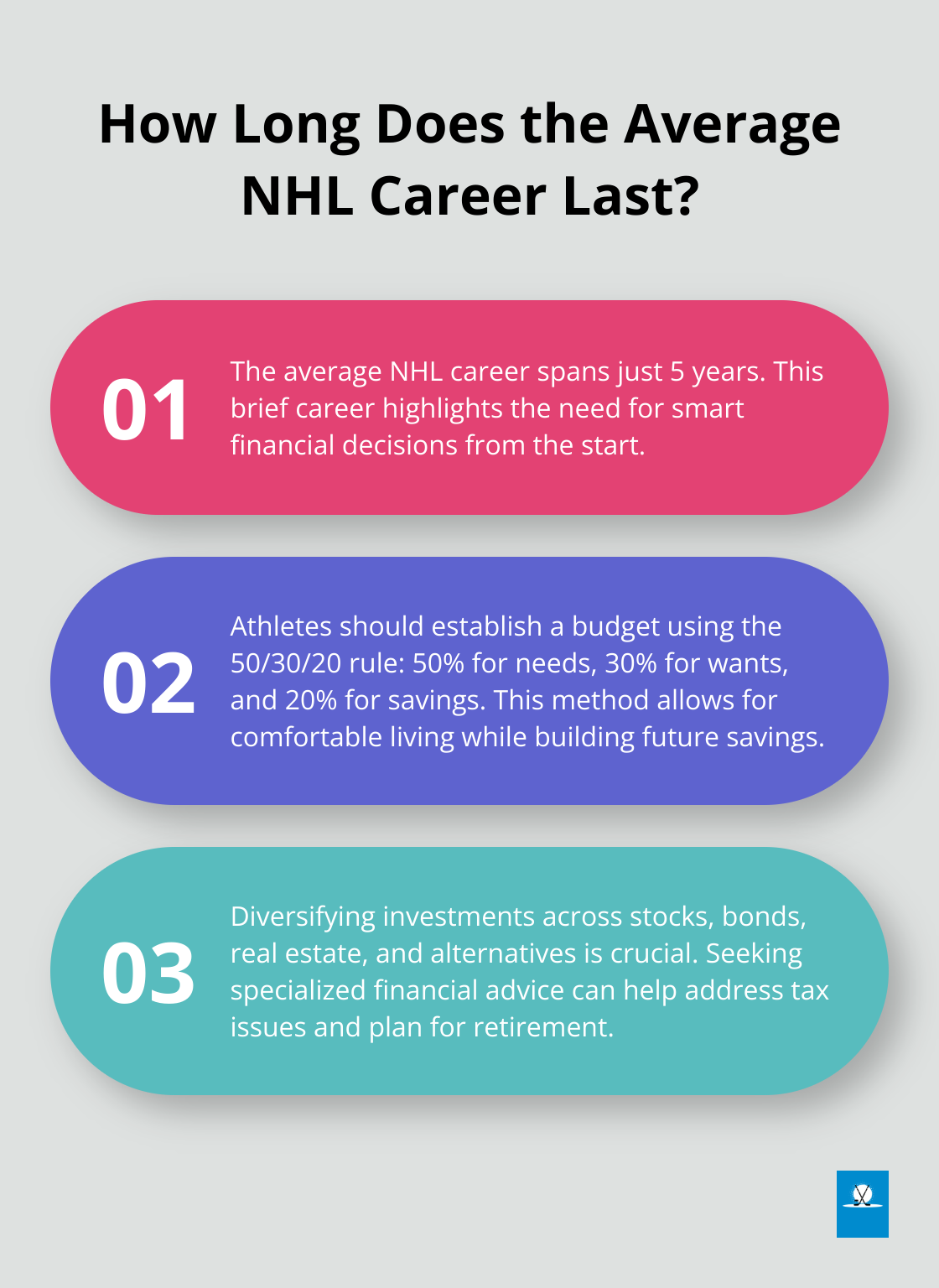
Look for advisors with experience in sports finance and a proven track record with other athletes.
Plan for the Long-Term
Consider your post-career financial needs. Factor in potential expenses like healthcare, education for children, and lifestyle adjustments. Try to estimate your retirement income needs and work backwards to determine how much you should save now.
Stay Informed and Adaptable
The financial landscape changes constantly. Stay updated on financial trends and regulations that might affect your investments. Be prepared to adjust your strategy as your career progresses and life circumstances change.
As you build your financial foundation, it’s equally important to consider your career options after retirement. Let’s explore strategies for a smooth transition into your post-athletic career.
Navigating Your Post-Athletic Career
Leverage Your Athletic Experience
Your sports career has equipped you with valuable skills that many industries seek. Time management, teamwork, leadership, and performance under pressure are just a few examples. A study predicted that student-athletes would develop higher levels of emotional intelligence and mentoring skills as a result of their athletic experiences.
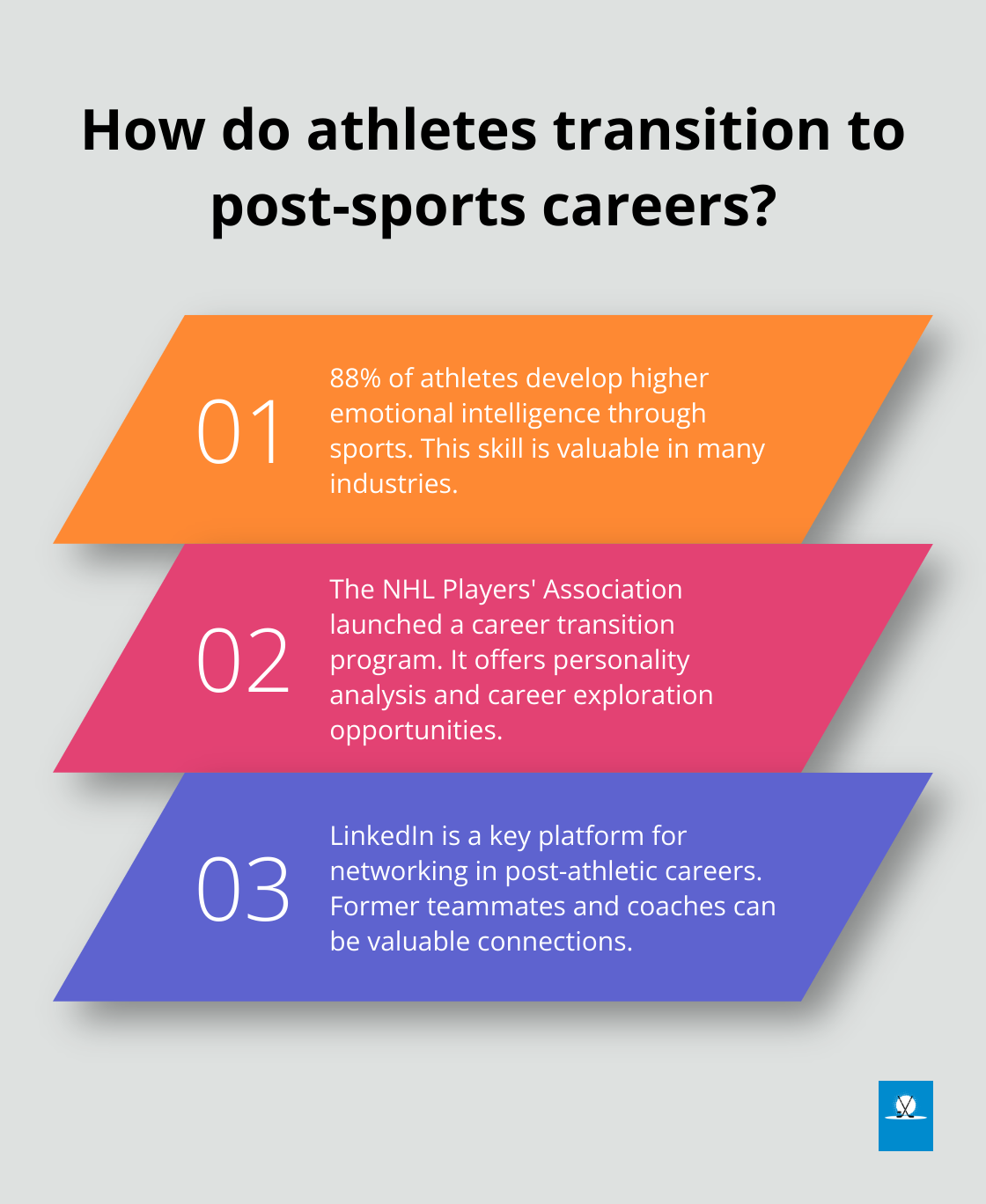
To identify your transferable skills:
- Reflect on your experiences both on and off the field
- Consider situations where you demonstrated problem-solving
- Recall instances of effective communication
- Think about times you showed adaptability
These skills can set you apart in the job market and apply to many professions.
Invest in Education and Training
Continuing education plays a key role in a successful career transition. Many professional sports leagues offer education programs for athletes. The NHL Players’ Association launched a program that gives its members the chance to do a personality analysis and delve into real career opportunities.
You should consider:
- Enrolling in online courses
- Attending workshops
- Pursuing a degree in a field that interests you
Platforms like Coursera or edX offer flexible learning options that can fit around your schedule. It’s always the right time to learn something new.
Build a Strong Professional Network
Networking serves as a powerful tool for career advancement. Start by connecting with former teammates, coaches, and industry professionals you’ve met during your athletic career. Attend industry events, join professional associations, and use social media platforms like LinkedIn to expand your network.
(Pro tip: Leverage your existing connections to open doors to new opportunities.)
Develop Your Personal Brand
Your personal brand represents your unique professional identity. It sets you apart and makes you memorable to potential employers or business partners. To develop your brand:
- Define your values, strengths, and career goals
- Consistently communicate this brand across your social media profiles
- Create a personal website to showcase your expertise
- Maintain a professional image in all interactions
Consider creating content related to your expertise, whether through a blog, podcast, or social media posts. This can establish you as a thought leader in your field and create new opportunities.
(Note: Your personal brand should evolve as you grow professionally, so revisit and refine it regularly.)
Transitioning to a new career takes time and effort. Stay open to new possibilities as you navigate this journey. The next chapter will address an equally important aspect of athlete retirement: maintaining mental health and wellness during this significant life change.
Maintaining Mental Wellness After Retirement
Redefining Your Identity
The shift from active athlete to retiree often triggers an identity crisis. When faced with an extreme lifestyle change such as retirement, athletes can experience psychological effects similar to grief, which can lead to significant challenges. To navigate this:
- Explore new interests and hobbies
- Set non-athletic goals
- Reconnect with pre-athletic passions
(A former NHL player found purpose by starting a youth hockey program, combining his love for the sport with community involvement.)
Managing Transition Stress
Retirement can bring unexpected stressors. Financial concerns, loss of routine, and uncertainty about the future are common. To cope:
- Practice mindfulness or meditation
- Maintain a structured daily routine
- Stay connected with former teammates and coaches
The NHL Alumni Association is partnering in a study to investigate the efficacy of Mentanine® as a potential treatment to reduce anxiety in former NHL players. Athletes should take advantage of such resources.
Prioritizing Physical Health
Physical fitness remains vital for mental well-being. However, many retired athletes struggle to stay active without the structure of team training. We recommend:
- Set new fitness goals (e.g., running a marathon)
- Try new sports or activities
- Work with a personal trainer to develop a tailored fitness plan
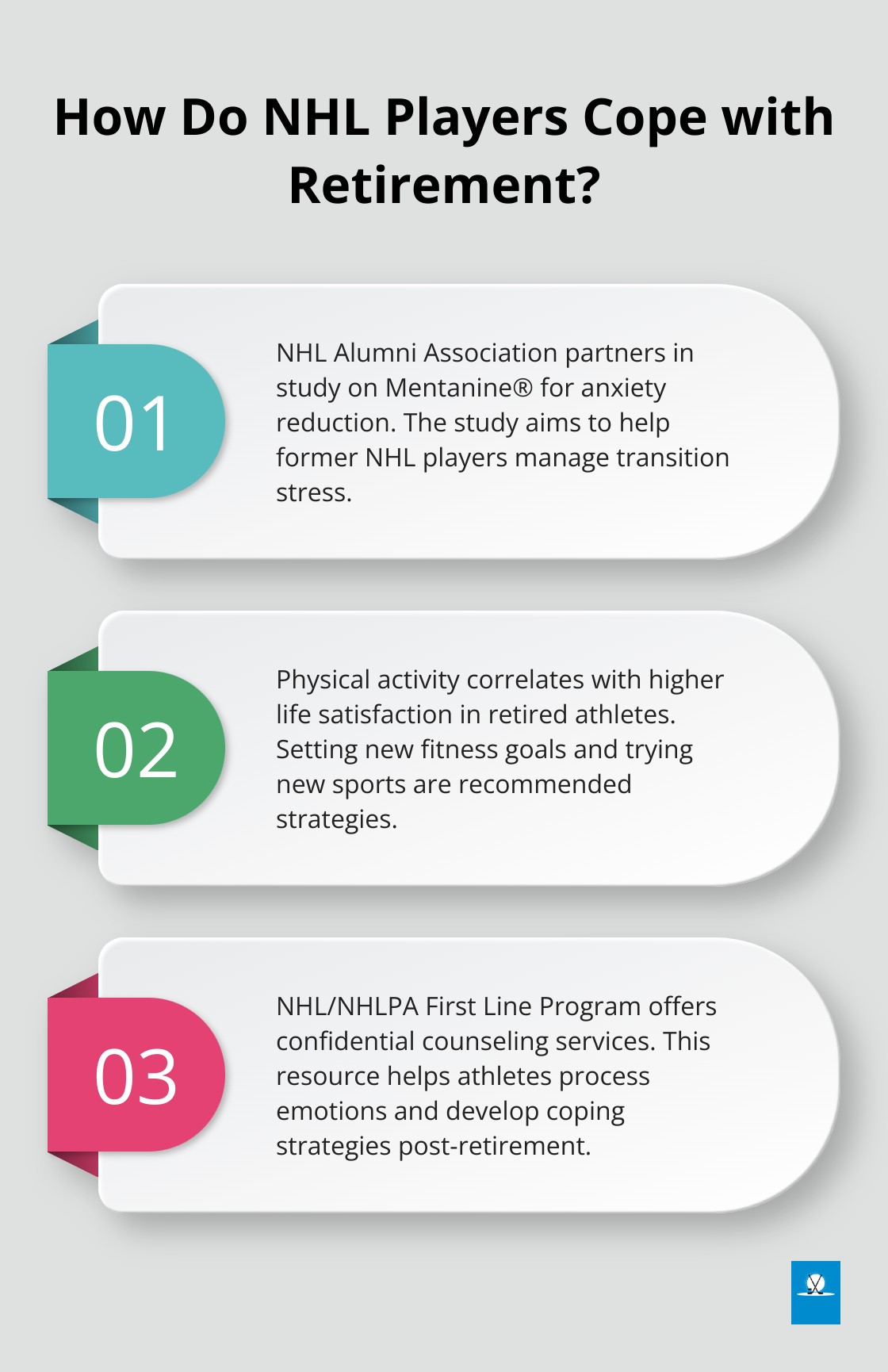
A study in the Journal of Sport and Exercise Psychology found that retired athletes who maintained regular physical activity reported higher life satisfaction.
Seeking Professional Support
Professional help can provide valuable support. Sports psychologists specialize in athlete transitions. They can provide tools to:
- Process emotions related to retirement
- Develop coping strategies
- Set and achieve new life goals
(The NHL/NHLPA First Line Program offers confidential counseling services. Athletes should utilize these resources when needed.)
Embracing New Opportunities
Retirement opens doors to new experiences and personal growth. Many athletes find fulfillment in:
- Mentoring younger players
- Pursuing business ventures
- Engaging in charitable work
These activities can provide a sense of purpose and help build a new identity beyond sports.
Final Thoughts
Athlete retirement marks a significant transition that demands careful planning and a proactive approach. Financial stability, career preparation, and mental wellness form the pillars of a successful post-athletic life. These elements require early attention and ongoing effort to ensure a smooth transition from professional sports to the next phase of life.
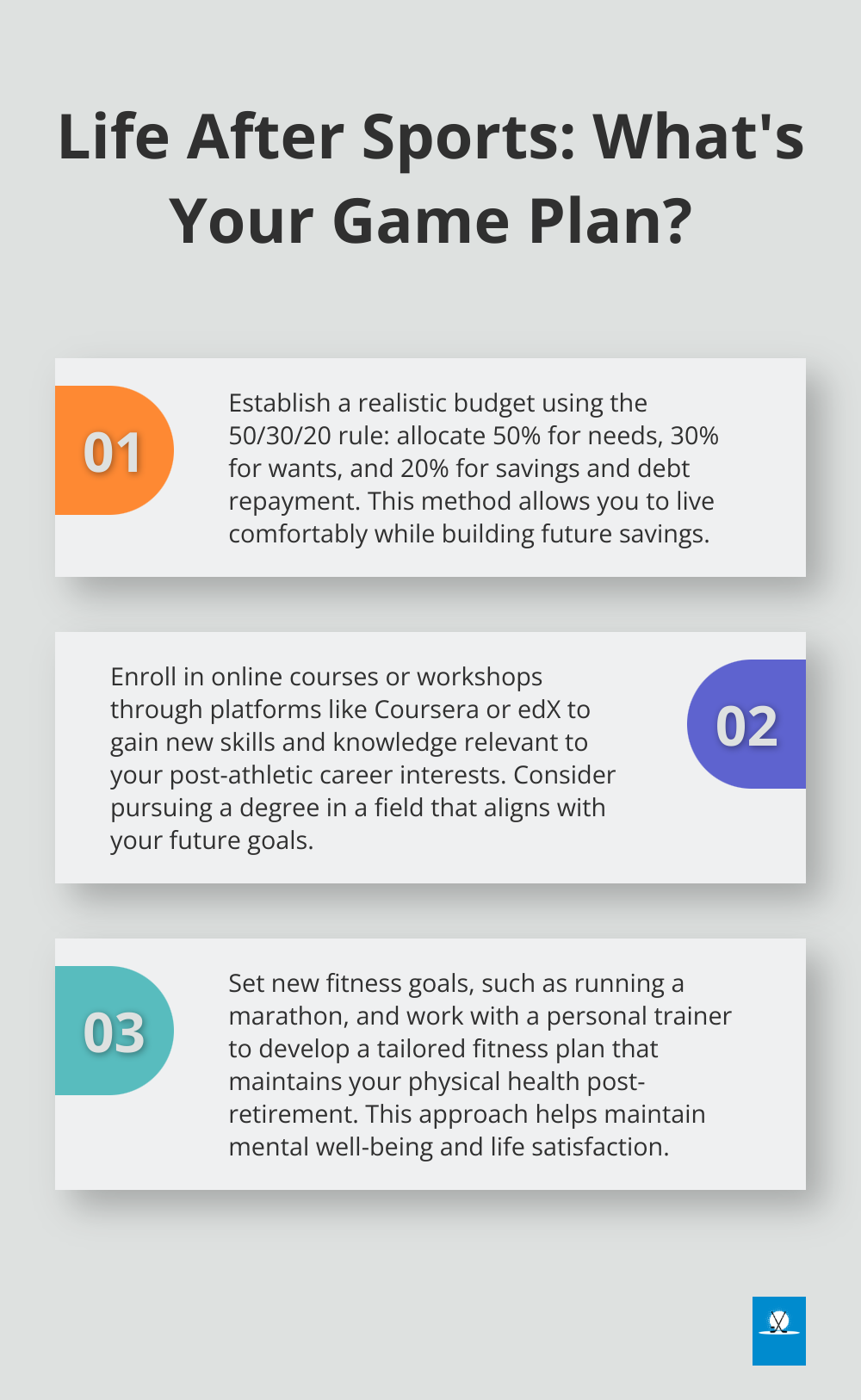
At Pro Hockey Advisors, we understand the complexities of athlete retirement. Our team offers comprehensive support to help you navigate this new chapter with confidence. We provide personalized guidance tailored to your unique needs and goals, from financial planning to career transition strategies.
Retirement from professional sports opens doors to new opportunities for personal growth, community involvement, and professional development. You can create a fulfilling and successful life beyond your athletic career by embracing these opportunities and utilizing available resources. (Your retirement years can be just as rewarding as your time on the ice with proper planning and a positive mindset.)
